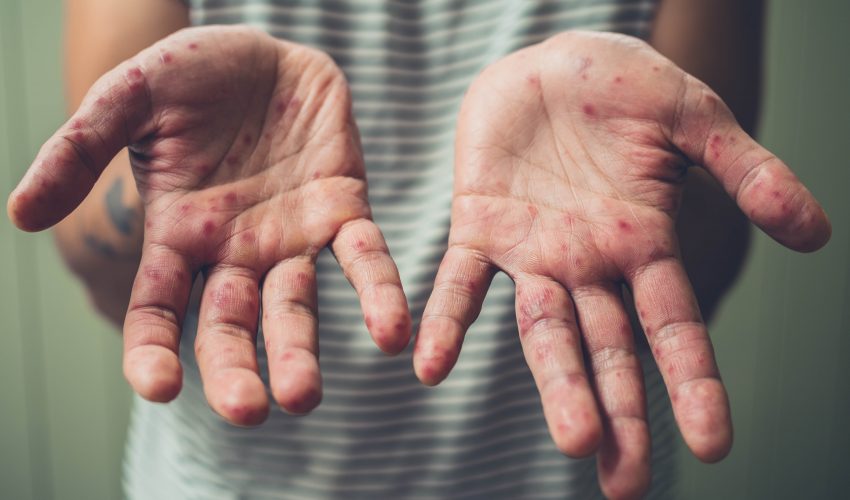Post Views: 2,118
ViewsA Guide To Treating Patients With Bipolar Disorder
Certain patients present more challenges than others, but every nurse knows that. They also know that recognizing physical ailments can be far easier than recognizing mental/emotional ailments. It takes a bit more focus to identify that a patient of yours may be suffering from bipolar disorder or another mental health illness. If you do in fact have a patient with this condition, identifying and then referring treatment is the best thing to do as a primary care nurse.
People with bipolar disorder often have difficulty hiding it, especially with bipolar ll. Their behavioral changes are very apparent to anyone spending more than a few minutes with them. Ranging from euphoric joy to feelings of worthlessness, sometimes in the span of an hour. Any of these behaviors is out of the ordinary, and it is important for a nurse to get them help.
Signs of Bipolar Disorder
Most people with bipolar disorder are not diagnosed until they are young adults in their 20’s, so you may be the one diagnosing them. However, their family members would probably agree that their son or daughter’s behavior is unpredictable and moody. This is more than just having a bad day, and shrugging this off as that can be harmful long-term.
Behavioral signs: risk-taking behavior, aggression, mood swings, crying, impulsivity, self-harm.
Psychological signs: manic episodes, depression, paranoia.
Sleep pattern signs: insomnia or sleeping too much.
Intense mood swings can lead a patient to be optimistic one day and then feel sad and depressed the next. You have to look for a pattern of behavior that seems very sporadic and emotional. This individual will also become defensive if you suggest they have a mental health disorder.
Two Types of Relapses
- Mania
- Depression
Mania – patients experiencing mania will have a euphoric joy that lasts for a while. Everything becomes perfect and they want to be extremely productive, stay up all night doing these tasks. In this mood, patients will speak very quickly and feel the excitement, leading them to sleep very little. A sense of urgency is a good way to describe it.
Depression – patients will have thoughts of worthlessness and even contemplate suicide. They wonder if life is worth living and feel a sense of emptiness. This is easier to spot as patients suffering from depression don’t want to get up or be productive. They will sleep for most of the day and not feel any motivation.
Levels of Bipolar Disorder
Bipolar I
This is characterized as a person that has had at least one manic episode in his or her life. This refers to a feeling of euphoria and high levels of motivation, followed by a depressive episode. The depressive episodes can last for weeks, and they won’t do anything at that time. Bipolar I disorder is usually diagnosed in a person’s early 20’s.
Bipolar ll
The first level is applied after one occurrence, while the second level is for a continuous cycle of mania and depression. The intensity and the frequency of the manic and depressive episodes lead to it being diagnosed as bipolar ll. The mood changes can be so impactful that people with this condition will miss work, school and family functions.
How Do You Treat It?
Once you recognize that a patient has bipolar disorder, you can treat them depending on the severity of their symptoms. If the symptoms are concerning you, your best choice may be to refer them to mental health services. As much as you want to help, the patient could be better-taken care of by someone accustomed to treating their mental health condition.
People with bipolar disorder can live a normal life if they put continuous effort into managing their symptoms. Also, with healthcare providers who can guide them in making the right decisions for themselves.
Primary care nurses can contribute through educating others on the matter, physicians treating patients with this condition, and relapse prevention.
Difficulties Nurses Can Face
- Patient Is In Denial – when a patient first finds out, they don’t want to accept it. This is a lifelong condition and they are in denial about it.
- Issues With Employment – because the manic and depressive episodes are so intense, patients often have difficulty with maintaining employment.
- Intense Moodiness – mood swings are a prominent part of this condition. The mood swings can be so devastating that relationships can be ruined, as the person doesn’t realize their anger.
- Impulsive Behavior – when in a manic mood, people with bipolar disorder are more likely to engage in dangerous behaviors. This includes gambling, drinking, and sexual promiscuity.
Bipolar disorder is a serious but common mental health condition in the United States. Treating the patient with kindness and compassion despite their erratic behavior is so important. If they feel cornered or attacked, they will be reluctant to receive treatment. Being aware of the symptoms as well as educating your fellow nurses could really help someone struggling with bipolar disorder.
One comment on “A Guide To Treating Patients With Bipolar Disorder”
Leave a Reply
A Guide To Treating Patients With Bipolar Disorder
By nurseadvisorofficial
Certain patients present more challenges than others, but every nurse knows that. They also know that recognizing physical ailments can be far easier than recognizing mental/emotional ailments.














BE CAREFUL of crypto platforms promising huge returns. They lure people into fake programs. I lost 198,450 USD last year. While researching on how to recover my funds, I came across several recommendations on the Bitcoin Abuse Forum about HACKERSTEVE. I contacted him via his email on hackersteve911@gmail.com | https//hackersteve.great-site.net/, and he helped me recover all my funds. If you’ve also been a victim of financial scams, don’t hesitate to get in touch with him.